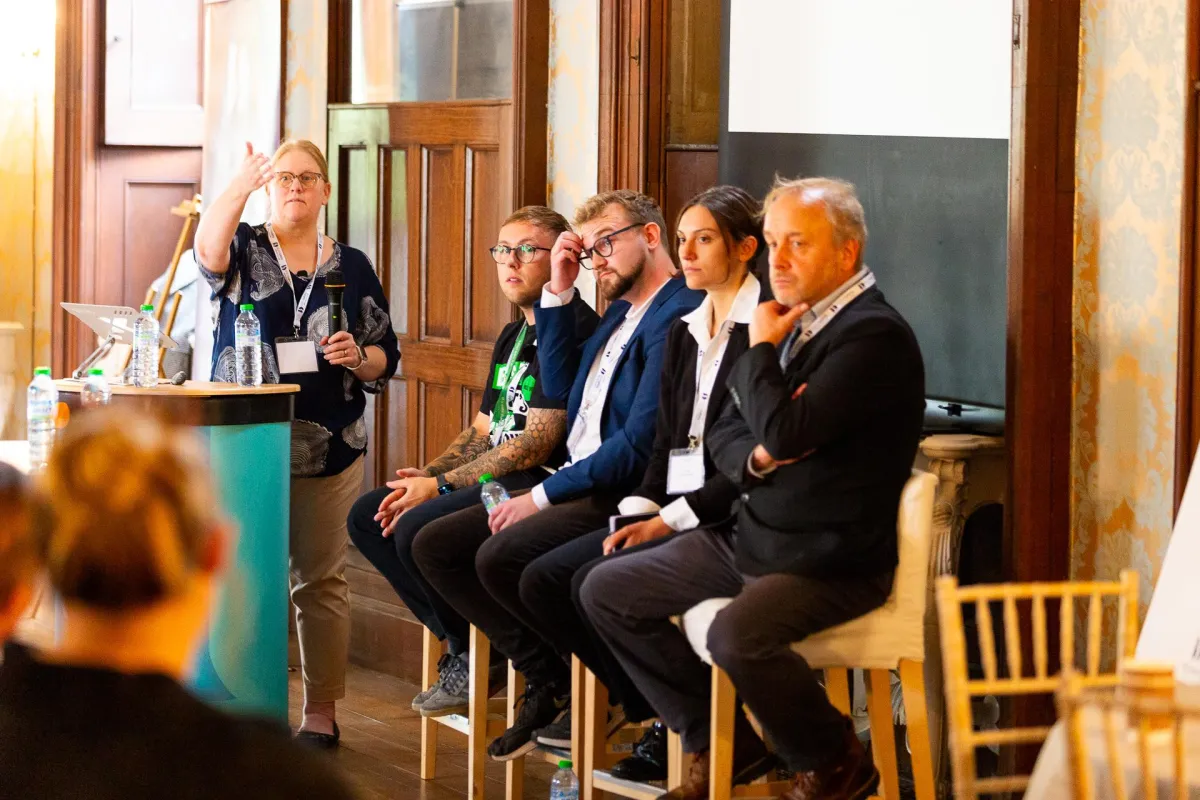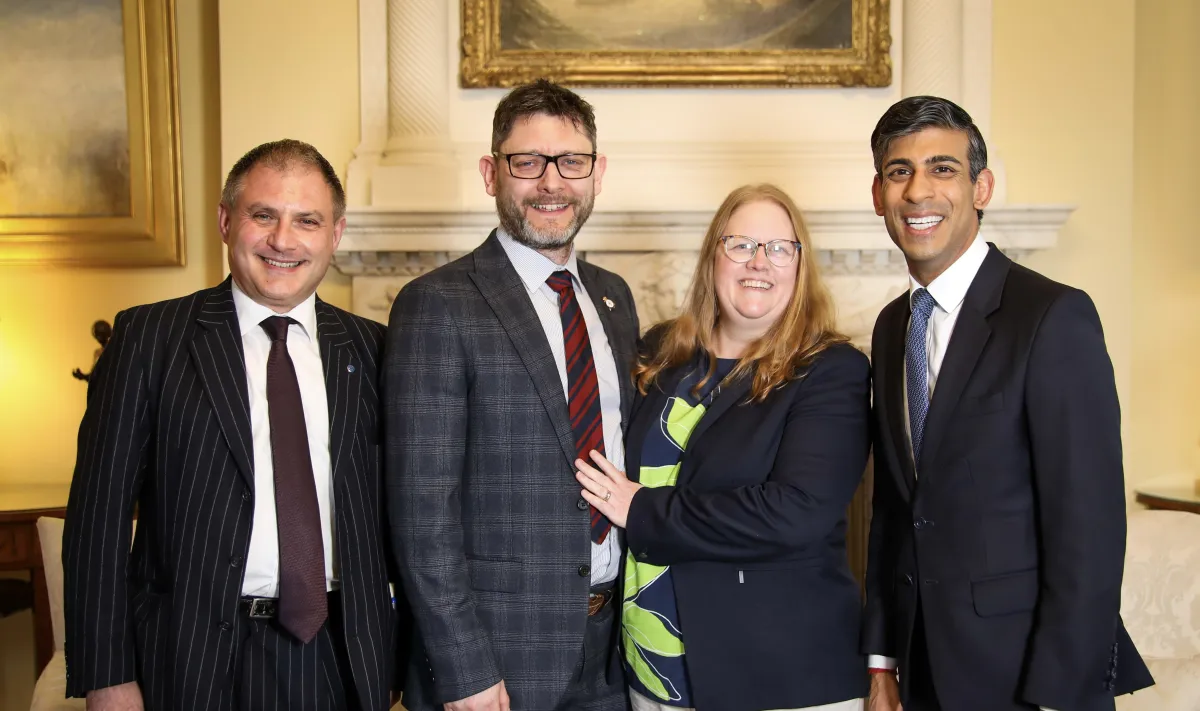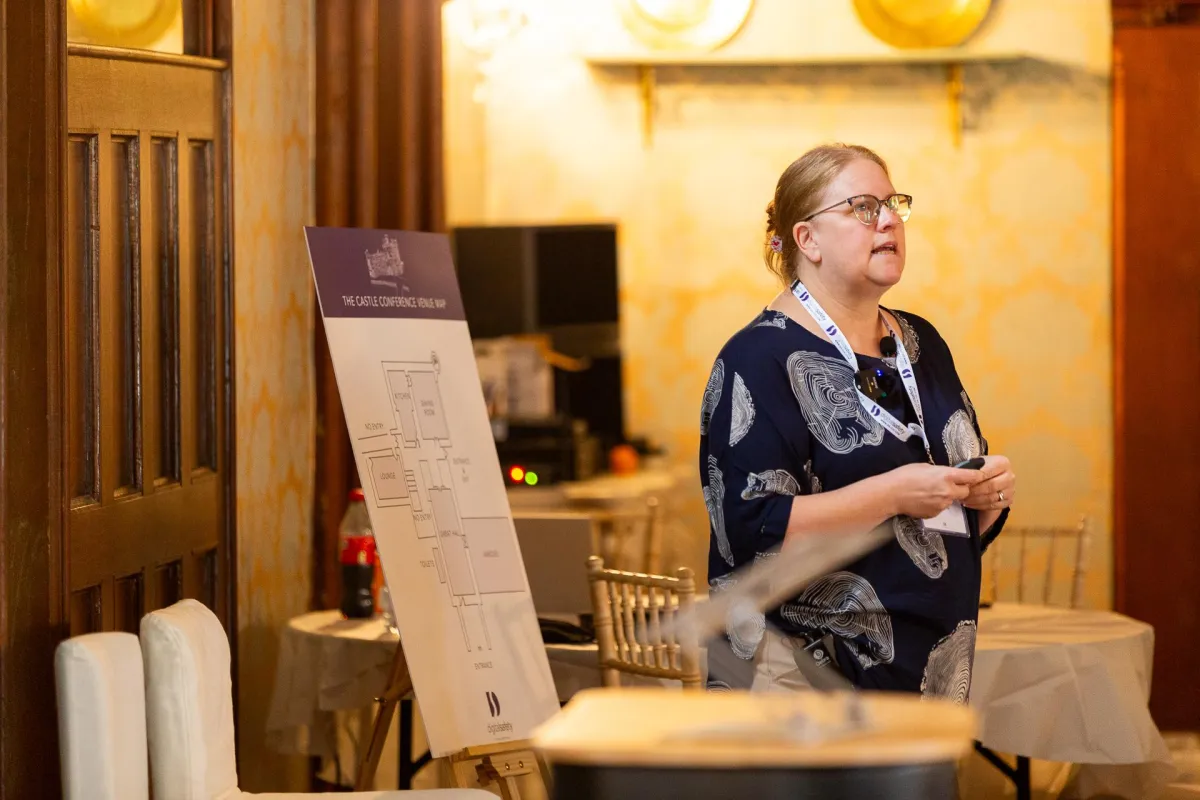
Lucy Smith
Neurodiversity & Inclusive Change Speaker, Facilitator, Compare
Lucy Smith, a keynote speaker on neurodiversity, resilience & inclusive change, helps organisations build inclusive, adaptive cultures that thrive on difference. Inspiring audiences & making a difference
Neurodiversity | Managing Change | Resilience
Life Stories | Social Enterprise
Authentic storytelling that makes a difference
Hi, I am Lucy!
Some people call me the "pocket rocket". I think that is because I have passion and energy to bring out the best in an audience.
I have been working with audiences for almost 25 years in many guises - Lecturer, radio presenter, drama teacher, children's entertainer (I have been a professional fairy) facilitator, compare and speaker.
As a speaker I believe there has to be some substance behind us and I sure have that too. Not being able to settle and always saying "YES" to opportunities has led to a whole lot of experience that informs my work and my presentations.
At my core I am a purpose led social entrepreneur who loves to start a conversation about topics that matter.
I start those conversations with stories some that will surprise and some that will inspire. I talk about some difficult stuff and combine my unique expertise and knowledge.
Relatable, authentic and thought provoking
Lucy x

Neurodiversity
What is your perspective?
I come from a range of different perspectives when I talk about neurodiversity. From pedagogy, organisation development and leadership, research, personal and family and real lived experience. With a a strengths based approach I talk positively and with passion about change and neurodiversity in work, school and community.
I engage audiences to get them thinking and start conversations that will make and does make a lasting difference.
Change Management
Let me meet you at your
bus-stop
In the world of change management, it's not about imposing a new route; it's about understanding where you're starting from.
I have spent a decade working with senior leaders in transformational change where I have learned that change is often an individual journey and we will all join that journey from a different bus-stop.
I combine theory with reality and always have an eye on the future.
Life Stories
The secret change agent
A wealth of stories based on real lived experience with plenty of lessons for the future. Spilling some my secrets on here would be giving away some of my best work which you will want to hear straight from the source.
Oh, okay, let's just say I can talk about resilience, royalty, and some really fun stuff from a career in international law enforcement.
Social Enterprise
Making a difference - the torch that lights the stars
Lighting people up to make sustainable change happen is a big part of what I do. From setting up a community radio station to developing an innovative and groundbreaking conference around digital wellbeing and young people.
I talk the talk and walk the walk when it comes to social enterprise, from grass roots to engagement at the highest levels right up to Downing Street.
Neurodiversity in the workplace
Delivering practical workshops, interactive webinars and tailored team development sessions.
Lucy explores how embracing neurodiversity drives creativity, collaboration and wellbeing at work.
-Understanding the strengths and challenges of neurodivergent colleagues
-Practical adjustments and inclusive communication strategies for teams
-Building a culture where neurodivergent talent can thrive and contribute fully
What do other people say?
Don't take it from me, here is what others say about working with me.
Listen online
Podcasts, interviews and YouTube
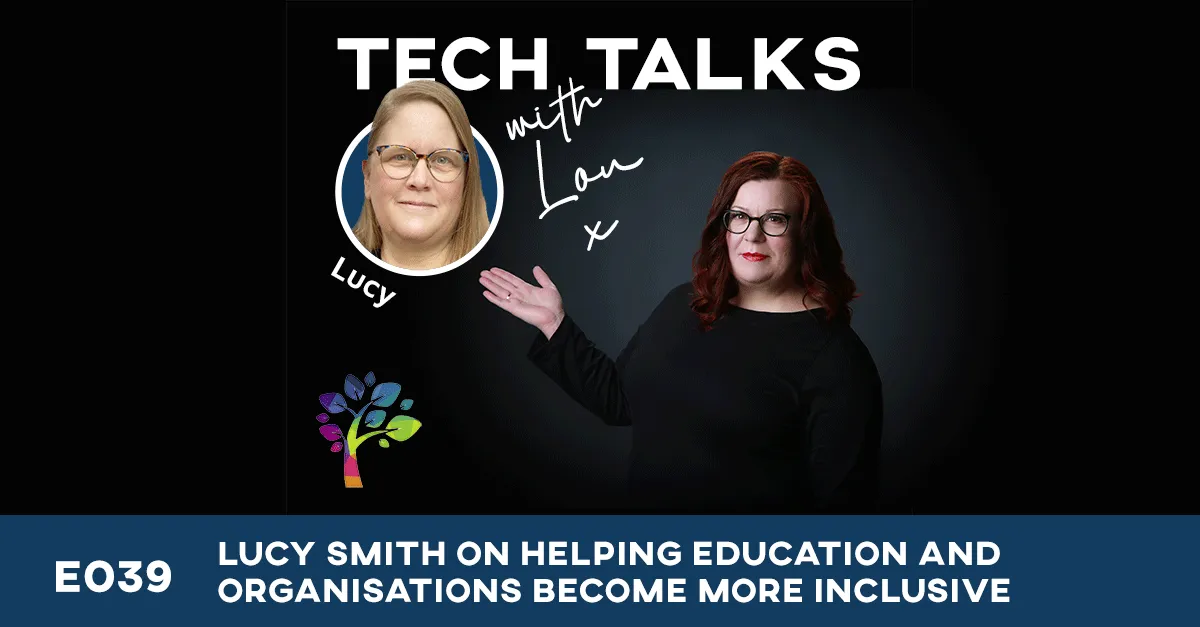
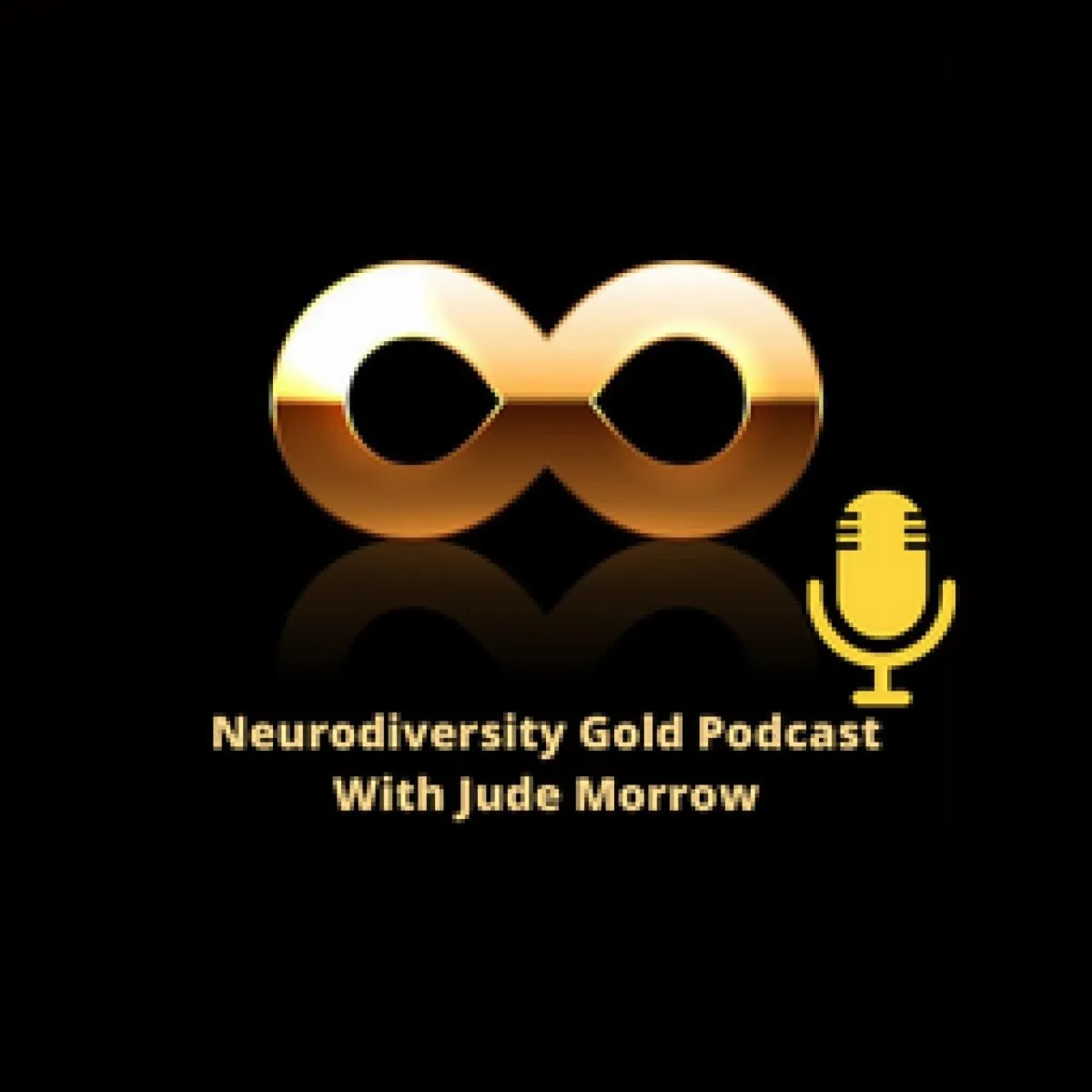
Read more
The blog

Why ADHD at Work is Everyone’s Business: What the “Keep Britain Working” review and ADHD Taskforce report mean for you
Why ADHD at Work is Everyone’s Business: What the “Keep Britain Working” review and ADHD Taskforce report mean for you
Introduction
As an HR or inclusion leader, you’re used to balancing business performance, wellbeing and compliance. But a twin wave of national reports is telling us it’s time to place ADHD firmly on the agenda.
On one hand there’s the Keep Britain Working Review, calling on employers to step up in tackling health-related worklessness. On the other, the Independent ADHD Taskforce Report highlights how poorly ADHD is recognised, diagnosed and supported - and how that impacts employers, productivity and inclusion.
I have been reading the reports this week and talking about them in training sessions as they are so relevant to the workplace right now. I have long believed that we are experiencing a crisis in the workplace due to burnout and overwhelm (and thats everyone not only neurodivergent staff) which is leading to a productivity crisis for employers. As a small business owner and employer myself I see and experience this from both sides - and personally.
Together, these reports underline something many of us in this field have known for years: neurodiversity isn't a side conversation - it's central to the future of work.
What the reports say
Keep Britain Working
The review identifies a growing health-related worklessness crisis in the UK and points to a shared responsibility model: employers, government, health and social supports must all play their part.
It suggests that hidden health issues - including neurodivergence - are undermining retention, engagement and capability in a way that cannot be ignored.
According to the Keep Britain Working Review (Department for Work and Pensions, 2025), employers must take a proactive role in tackling health-related worklessness.
ADHD Taskforce Report
The Taskforce points out that ADHD is: under-recognised, under-diagnosed and under-supported.
The Key take-aways are;
Many adults with ADHD may still be waiting for diagnosis or support.
There’s a call to offer needs-led support ahead of or without diagnosis.
The report identifies significant cost implications for non-support: dropout, unemployment, mental health, workplace exits.
“What these new reports highlight is what I’ve been hearing in every training room for years - managers are already facing neurodiversity every day.
They’re not resistant; they’re uncertain. These reports validate that uncertainty and turn it into a national call to act.”
When I first started talking about neurodiversity in the workplace seven years ago, waybefore that pandemic, I often said that the conversation wasn’t about future trends - it was about Gen Z’s lived reality (Although it also transpires that many other generations are also speaking up about their own experiences).
Gen Z grew up talking openly about mental health, identity and inclusion. They expect employers to understand difference, not to pathologise it.
In my workshops, managers regularly say,“I just want to do the right thing, but I don’t know what’s reasonable.”
These reports give them permission, and responsibility, to start with empathy and evidence, rather than waiting for perfect systems or diagnosis letters that may never come.
What this means for employers
Together, these reports send a clear message:
ADHD is not just a clinical or educational issue, it affects work, careers and organisations.
Employers cannot wait for perfect diagnosis or paperwork; the emphasis is shifting to what needs a person has and what you can do about it.
Doing nothing is a risk: performance issues, turnover, disengagement and legal exposure are part of the cost – and as the reports show, those costs are high.
Practical next steps
If you want to take action here are some tips for what to do now...
Review your workforce data: how many staff are reporting mental health, attention, focus or executive function issues?
Check your policies and manager training: are ADHD and neurodivergence included in your inclusion, performance and adjustment frameworks?
Start the conversation: get line-managers comfortable asking “What gets in the way of you doing your best work?” rather than “What’s wrong with you?”
Ask for help: ensure HR, inclusion and occupational health are aligned on how to support “suspected” or “undetected” ADHD, not only the formally diagnosed.
These reports don’t just confirm what’s happening, they legitimise what inclusive employers have felt for years: the system may be slow, but your response doesn’t have to be.
Find out More
If you’re ready to build manager confidence, create inclusive adjustment-pathways and align your policies with the latest national research, then we’d love to support you.
I am running a FREE Lunch & Learn on 11th November 2025 called “Red flags or Reasonable Adjustments” you can sign up here:
https://www.inclusivechange.co.uk/stc---red-flags-and-reasonable-requests
And if you are looking for bespoke training for your team get in touch today to discuss our training offer for line-managers and HR teams.
Your Questions Answered
Q1: What is the Keep Britain Working Review?
The Keep Britain Working Review (Department for Work and Pensions, 2025) examines the UK’s health-related worklessness crisis.
It calls on employers, government and healthcare to share responsibility for helping people with long-term or hidden health conditions stay in work.
Read it here: Keep Britain Working Review – GOV.UK
Q2: What did the ADHD Taskforce Report (2025) recommend for workplaces?
The Independent ADHD Taskforce Report from NHS England highlights that ADHD is under-recognised and under-supported across the UK.
It recommends a needs-led approach — meaning employers should provide support and reasonable adjustments even before formal diagnosis.
Read it here:ADHD Taskforce Report – NHS England
Q3: Why does ADHD awareness matter for employers?
ADHD affects focus, executive function and time management, all crucial workplace skills.
Supporting employees through small, practical adjustments improves retention, wellbeing and productivity, while reducing legal and reputational risk under the Equality Act 2010.
Q4: What are “needs-led” adjustments?
“Needs-led” means adapting the job or environment based on what an employee needs to perform well, not waiting for medical paperwork.
Examples include clear instructions, quieter workspaces, flexible start times, and written follow-ups after meetings.
Q5: How can Inclusive Change Ltd help?
Inclusive Change Ltd is a UK-based neurodiversity consultancy working with employers across Bristol, Devon, the South West and nationwide.
We help HR teams and line-managers understand ADHD, build confidence, and apply fair decision-making through our Red Flags or Reasonable Adjustments training and Start the Conversation Workshops.
Join our next session: https://www.inclusivechange.co.uk/stc---red-flags-and-reasonable-requests

Some of the Companies Inclusive Change Have Worked With


Inclusive Change Ltd
The Brightwell, Bradbury House
Wheatfield Drive
Bradley Stoke, Bristol
BS329DB
Reg no: 12412464
Copyright 2023 - Inclusive Change Ltd
VAT NO: 352 1564 17
ICO Reg: ZB081779
UK Register of Learning Providers: 10090652
Column Header
Lorem ipsum dolor sit amet consecetuer lorem ipsum
Organically grow the holistic world view of disruptive innovation
At the end of the day, going forward, a new normal that has evolved
Column Header
Lorem ipsum dolor sit amet consecetuer lorem ipsum
Organically grow the holistic world view of disruptive innovation
At the end of the day, going forward, a new normal that has evolved
Column Header
Lorem ipsum dolor sit amet consecetuer lorem ipsum
Organically grow the holistic world view of disruptive innovation
At the end of the day, going forward, a new normal that has evolved






